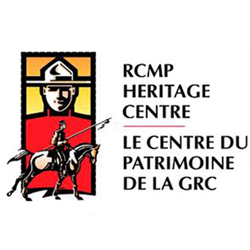Insp. Frank French
Inspector Francis (Frank) Henry French (O.163) had two key relatives in the early members of the Force.
Like his father, uncle and brother, he too distinguished himself and was recognized for his efforts.
Early Years
He was born on the 2nd of June 1884 at Fort Qu’Appelle, Saskatchewan.
His father was Sub-Inspector Jack French – Regimental Number O.19 and his uncle was Commissioner George Arthur French – Regimental Number O.1. Jack French took his discharge from the North West Mounted Police on the 1st of September 1883. When the Northwest Rebellion erupted – Jack French formed the “French’s Scouts” and were used to support the Canadian Militia. At the Battle of Batoche, his bravery was noted in saving the life of another soldier under heavy rifle fire. Unfortunately, Jack French was later killed on the 12th of May 1885 at Batoche.
Francis French’s older brother – John Poyntz French (Regimental Number 3031) also joined the NWMP on the 2nd of March 1894. While a Corporal, this brother sought his discharge and accepted a commission in the South African Constabulary. His transfer to the South African Constabulary was supported by both the Governor General of Canada and the Commissioner. In World War I, he joined the Princess Patricia Canadian Light Infantry. His outstanding actions at Vimy Ridge and being mentioned in several dispatches resulted in him receiving the Distinguished Service Order. At the end of World War I, he was discharged at the rank of Lt. Colonel.
Joins The Force
Following in his family’s tradition, Francis French joined the Royal North West Mounted Police on the 6th of April 1905 and was assigned the Regimental Number 4355. While in the Force, he served at many locations: Battleford (1905-1910)
- Regina (1910-1911)
- Le Pas (1912-1916)
- Baker Lake (1916-1918)
- Siberia (1918-1919)
- Portage La Prairie (1919 – 1922)
- Weyburn (1922-1924).
After only being in the Force for three years, he was promoted to Corporal and to Sergeant the following year based on his work on successfully rounding-up horse and cattle thieves. Frank was commissioned to the rank of Inspector on November 1, 1910.
Bathurst Inlet Patrol
In 1909, an American, Harry Radford, journeyed to Fort Smith, Northwest Territories having obtained official permission to kill a Wood Buffalo for scientific purposes. He was Joined by a Canadian, Tom Street. They left Fort Smith in 1911 and were next heard of in 1912 when they reached Bathurst Inlet.
Later, rumors were heard that “two whites” had been murdered by Inuit “out on the ice“. In 1914, the Force launched an investigation and O.161 Insp. Walter Beyts (O.161) was assigned is the head investigator and his team setoff to Chesterfield Inlet, Hudson Bay. His party experienced extreme weather conditions and it was not until 1915 that this patrol established a base camp on Baker Lake. Weather conditions and a scarcity of caribou prevented further patrols.
In 1916, Insp. French came to relieve Insp. Beyts who was ill. French was joined by 4557 Sgt. Major Thomas Caulkin (Reg. #4557) and 4 Inuit with 20 dogs.
They then set out on what became the longest dog team patrol in the history of the Force. They left Baker Lake on March 21, 1917, encountering extreme cold. On arriving at Bathurst, they were able to confirm that Radford and Street had been murdered. Next, they were now required to continue northwest to Bernard Harbour to continue their investigation.
French and Caulkin satisfied themselves that the deaths had been in self defence. The patrol returned to Baker Lake on January 29, 1918 after 10 months and 5,153 miles (8,292 kilometers) by dog team.
The map below illustrates the journey taken by Insp. French and his patrol.
In a letter to his mother, Frank French stated “Just a line to let you know that I am back in the land of the living trying to enjoy life, such as it is up here and hoping to get over the effects of the long patrol which nearly finished me. Such a trip will never be my luck again.
Could I have seen or realized the immensity of the journey before me, a journey of 5,000 miles all told and foreseen its hundreds of perils and endless hardships, had that a glimpse of its gaunt spectres of hunger and cold and numerous fears for the safety of my party and the haunting sense of isolation from the comfortable outer world, the monsterious golf of separation, like the unbridgeable chasms that appear in dreams.
Could I have seen all this before starting might have decided, life was too short to be walking side by side with fate and disaster hovering all around and only waiting for us. But once launched on the patrol there was to be no turning back so far as I was concerned as the Chief had selected me for this duty.”
Upon completing their patrol, both Frank French and Tom Caulkin asked to be transferred out of the North recover from the prolonged periods of isolation and starvation. Commissioner approved both transfers.
For their heroic efforts, Insp. French was awarded the Companion of the Imperial Service Order and Sergeant Major Caulkin received the Kings Police Medal.
Siberian Expedition
In late 1918, both Insp. French and Sergeant-Major Caulkin joined up with the RNWMP “B” Squadron heading to Siberia.
Insp. French came down with pneumonia and moderate bronchitis. It was suspected that his immune system was degraded because of his most recent arctic patrol.
Returns to Canada
As a result, Insp. Francis French was evacuated back to Canada well before the other members of “B” Squadron. With the absence of Insp. French on the Squadron, Sergeant-Major Caulkin was promoted to the rank of Inspector and in later years rose to the rank of Assistant Commissioner.
Advances in Life
Insp. French discharged from the Force on the 31st of December 1924 and settled in Weyburn Saskatchewan.
In 1949, the Canadian Board on Geographical Names officially assigned the name of French Lake after Insp. Frank French. The lake is situated three hundred miles north of Lac La Ronge, Saskatchewan. This honour was bestowed in recognition of Insp. French’s achievements in the Force. This nomination was submitted by the Commanding Officer of “F” Division. When interviewed at the time of this dedication, Frank French stated “I had first made a trip into the north in 1906 after joining the Force in 1905. The trip was made by canoe, and the party went as far as Lac La Ronge.
The following year, I went farther north to the lake now bearing my name. Again in 1916, when I was an Inspector went into the north to lead the Baker Lake patrol.
In all, I spent nine of the 21 years service with the RCMP in the north. I can remember seeing millions of ducks, geese and fish and mosquitoes.”
He eventually passed away in Regina in on March 30, 1961 while being examined for high blood pressure. Insp. French’s remains were laid to rest in the RCMP Depot Cemetery.


 January 19, 2012
January 19, 2012 














